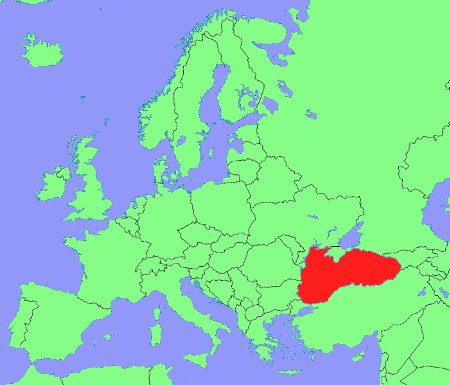
Circle the area on this map

B. Two of the United States’ fellow members in the North Atlantic Treaty Organization (NATO) border the Black Sea and are expected to push for a bigger NATO presence in the area at the NATO summit in Warsaw next month.
D. Turkey has a complete control over the straits connecting the two seas. It can close the straits at its discretion in both wartime and peacetime under the Montreux Convention, which governs the passage of vessels between the Black and the Mediterranean Seas. The U.S. says it follows rules of the convention which also says nations that don’t border the Black Sea cannot keep warships there more than 21 days.
C. Russia annexed Ukraine's Crimea in 2014. Relations between Russia and NATO are severely strained over Moscow's role in the Ukraine crisis and in Syria. The Bosphorus and Dardanelles are the Turkish-controlled straits that connect the Black Sea to the Agean Sea portion of the Mediteranean
A. NATO is set to add four new multinational battalions in Poland, Estonia, Latvia and Lithuania - nations on the Baltic Sea that have expressed concern at the increased activity of Russian forces near their borders. While Russia says it poses no threat to alliance, NATO is considering what to do to counter what it sees as growing Russian aggression.